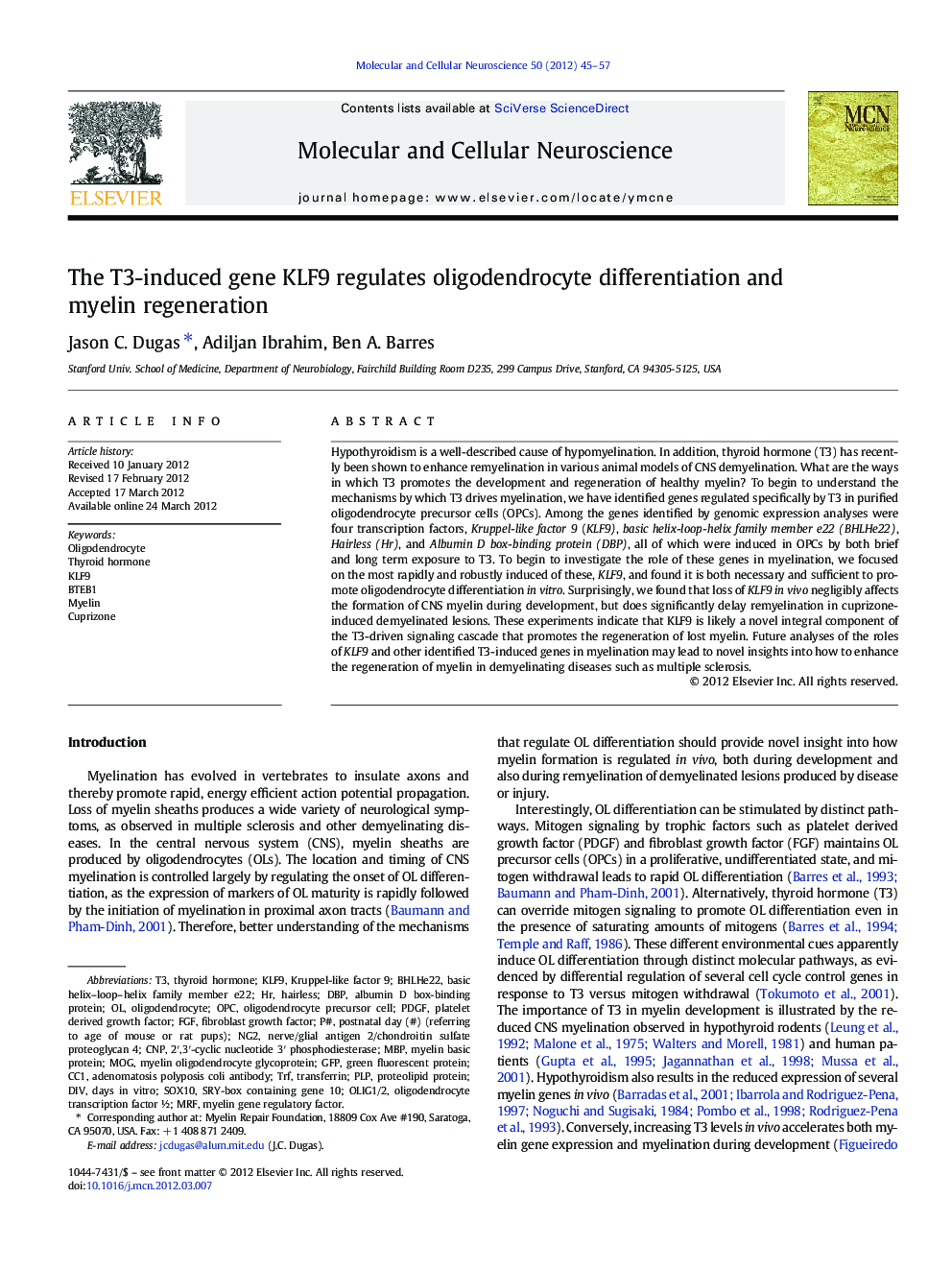| Article ID | Journal | Published Year | Pages | File Type |
|---|---|---|---|---|
| 2198600 | Molecular and Cellular Neuroscience | 2012 | 13 Pages |
Hypothyroidism is a well-described cause of hypomyelination. In addition, thyroid hormone (T3) has recently been shown to enhance remyelination in various animal models of CNS demyelination. What are the ways in which T3 promotes the development and regeneration of healthy myelin? To begin to understand the mechanisms by which T3 drives myelination, we have identified genes regulated specifically by T3 in purified oligodendrocyte precursor cells (OPCs). Among the genes identified by genomic expression analyses were four transcription factors, Kruppel-like factor 9 (KLF9), basic helix-loop-helix family member e22 (BHLHe22), Hairless (Hr), and Albumin D box-binding protein (DBP), all of which were induced in OPCs by both brief and long term exposure to T3. To begin to investigate the role of these genes in myelination, we focused on the most rapidly and robustly induced of these, KLF9, and found it is both necessary and sufficient to promote oligodendrocyte differentiation in vitro. Surprisingly, we found that loss of KLF9 in vivo negligibly affects the formation of CNS myelin during development, but does significantly delay remyelination in cuprizone-induced demyelinated lesions. These experiments indicate that KLF9 is likely a novel integral component of the T3-driven signaling cascade that promotes the regeneration of lost myelin. Future analyses of the roles of KLF9 and other identified T3-induced genes in myelination may lead to novel insights into how to enhance the regeneration of myelin in demyelinating diseases such as multiple sclerosis.
